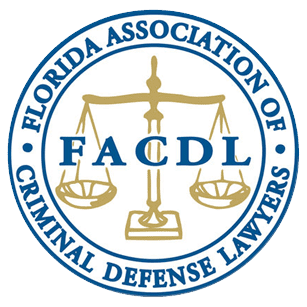
You have a lot at risk when dealing with criminal charges. How you plead during your court hearing, as well as your answers to questions asked by the prosecution, can determine your legal consequences. Our criminal defense lawyer can help you prepare for your upcoming court hearing by rehearsing some of the most common questions.
Call Erika Valcarcel, Criminal Defense Lawyer, P.A. today at (941) 363-7900 or use our online contact form. We will prepare you for your case and help relive any stress you may be experiencing.
Are You Aware of the Charges?
It is important to fully understand the charges you are dealing with so that you can make the right decision for you, when pleading. The prosecution may ask you if you are aware of the charges. If you have any questions or you are not entirely sure of the charges, it is a good idea to discuss these charges with your criminal defense.
How Do You Know the Defendant?
This is also one of the first questions that you might hear because it provides the courtroom with additional information. The prosecution may want to establish a relationship between the defendant and the plaintiff if there is one. State your relationship with the defendant. Avoid any additional details, unless asked. They may follow up with other questions, like how long you knew them and in what capacity.
Other questions that might be asked to gather information include:
- How long have you known the defendant?
- How long have you worked at (Place of employment)?
- How long have you lived at your address?
- How long were you in a relationship with the defendant?
When answering, provide factual information, but avoid offering any additional information, unless necessary.
How Do You Plead to Your Charges?
One of the most important questions that the prosecution will ask, is how you plead to the charges. It can be helpful to discuss your plead options with your criminal defense lawyer ahead of time. Available options include:
- Guilty: A guilty plea means that you admit guilt to the suggested charges
- Not guilty: A not guilty plea means that you did not commit the suggested charges. Your case will likely go to trial if the prosecution decides to pursue charges
- No contest: A no contest, or Nolo Contendere, is a plea that does not admit your guilt, but states that you do not choose to contest the charges currently
A no contest plea agreement is often a part of a plea deal, or agreement, that you and the prosecution agree to ahead of time. This is often done to avoid trial. How you plead will affect your options going forward. Criminal charges can impact your life in many ways, including a permanent criminal record and the inability to vote. If you plead no contest, or guilty, you also waive your rights to a criminal trial.
Other Ways to Prep For Your Upcoming Criminal Hearing
In addition to rehearsing some of the most common prosecution questions, a skilled lawyer can also help you prepare for your upcoming hearing in other ways. By going over the complaint and charges with your legal team ahead of time, you can identify any false statements. This is also a good time to begin gathering your own evidence to support your side of the claim.
Prepare for Your Upcoming Criminal Trial
By preparing for your upcoming criminal trial, you can rehearse how you will answer some of the most common questions that you might be asked. Evaluating your plea agreement options is also important as the way you plead will impact your legal options going forward.
Erica Valcarcel at Erika Valcarcel, Criminal Defense Lawyer, P.A. has many years of experience representing clients in criminal cases in the Manatee and Sarasota area. She is well-versed in criminal trials and will ensure that your rights are protected while she guides through the process. Reach out to Erika Valcarcel, Criminal Defense Lawyer, P.A. today at (941) 363-7900 to ensure you are fully prepared for your upcoming hearing.
View All Blogs

